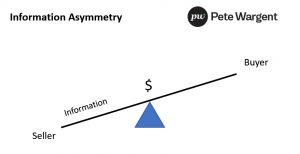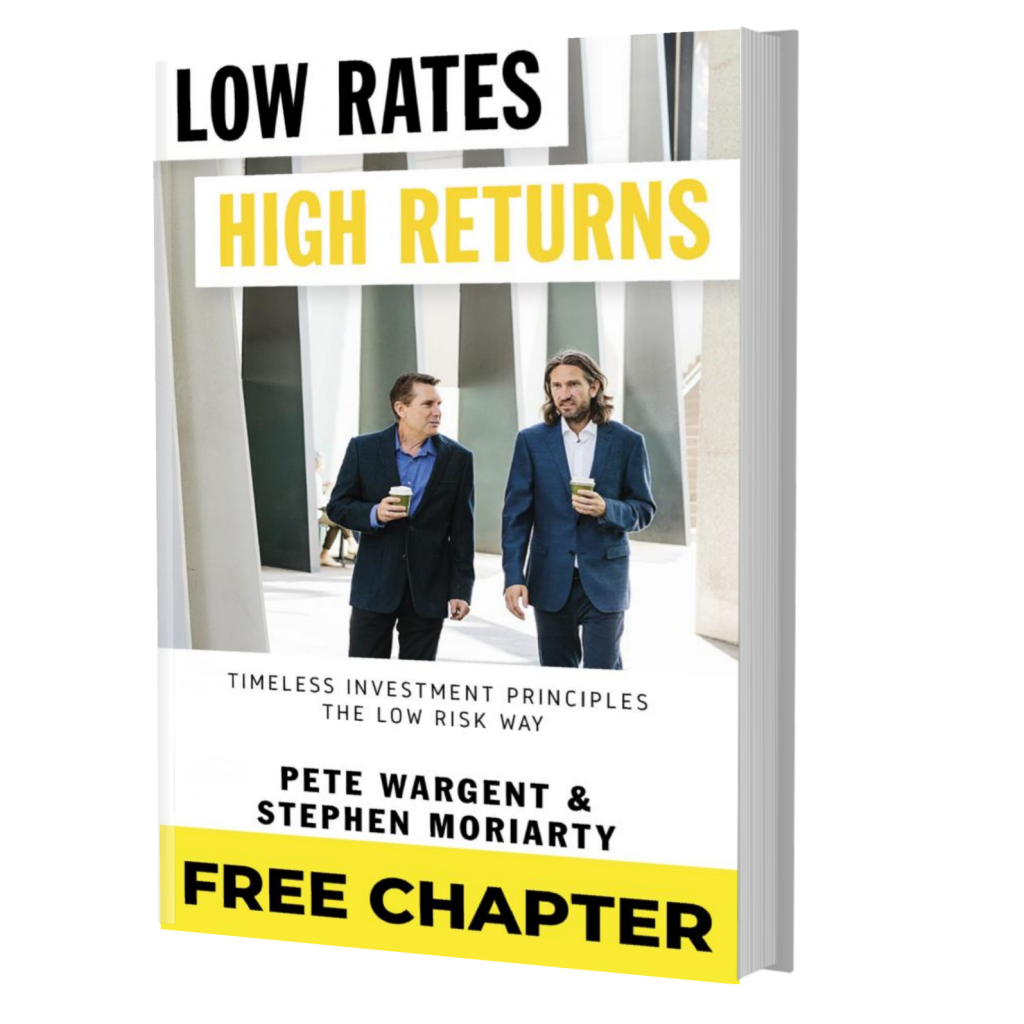Information asymmetry
Typically in a transaction one party has access to more information than the other, and this asymmetry can be higher in more complex markets.
To alleviate fears of insider trading in the stock market, investors are often compelled to ‘follow the smart money‘ – fund manager Peter Lynch noted that there’s no greater tip-off for the success of a stock than people in the company putting meaningful amounts of their own money into it (the opposite may also hold true).
If you’re in the market for nutritional supplements or a second-hand car it’s almost inevitable that the vendor knows more about the product than you do, while if you’ve ever sold your home you’ll know how it’s possible to gloss over potential maintenance issues to pave the way for a smooth sale.
Moral hazard & other failures
In recent times information asymmetry has become closely associated with moral hazard, while consumers often experience its impacts indirectly through insurance premiums, insurers being uncertain how well individual owners will care for a piece of property.
This can lead to perverse outcomes. In Brisbane we saw higher insurance premiums after the 2011 floods leading some homeowners to eschew flood insurance entirely, including some of the households that may prove to need it most.
For the purposes of this blog I’m most interested in how we can avoid bad investment decisions due to information failure.

Not buying a lemon
The rise of the internet has massively increased available information, shifting information asymmetry into more complex fields.
More information is not always better, of course, the emergence of ‘Dr Google’ leading to some interesting cases of self-diagnosis, for example!
On the positive side, stock market investors can now access Annual Reports at the click of a button, and the availability of online brokerages & research have reduced the reliance on stockbrokers to facilitate share market purchases.
It’s a natural law of economics that vendors of poor-quality goods are incentivised to present them as higher-quality, but here are 5 ways you might avoid ‘buying a lemon’ & becoming bitter:
(i) Seek out more information – thoroughly research all available and relevant information, recognise the risks, understand the potential extent of your downside, and be as prepared as you can be;
(ii) Warranties – get as much assurance as you can, seek professional opinions, and obtain guarantees or insurance where appropriate;
(iii) Industry standards – check the licensing status of vendors, agents, or salespersons, scrutinise the track record of the agent or seller, and avoid unscrupulous dealers at all costs;
(iv) Demand a discount – where there is uncertainty negotiate hard, and be prepared to pass on a transaction if necessary; and
(v) Follow actions not words – there’s an old saying that what people do is more important than what they say – I’ve found that watching people’s actions closely in financial transactions can be instructive.
Wherever there’s an imbalance of information a chance of buying a lemon exists, and there can be no substitute for experience & competent research.
Be vigilant, and tilt those imbalanced scales back in your favour!






